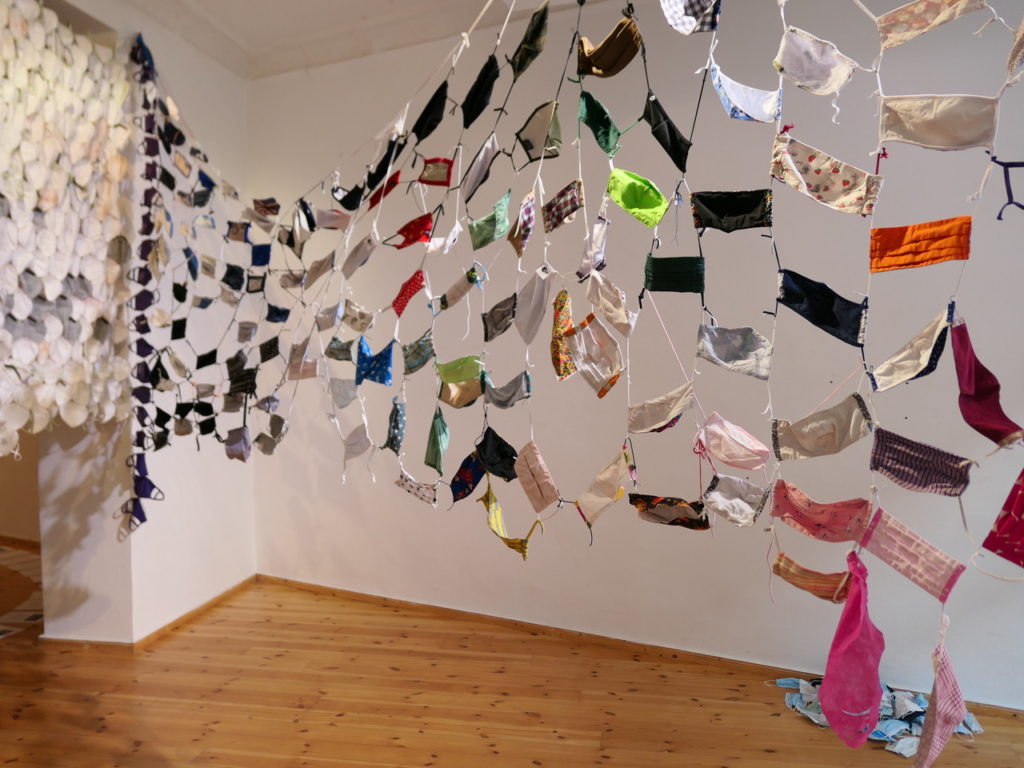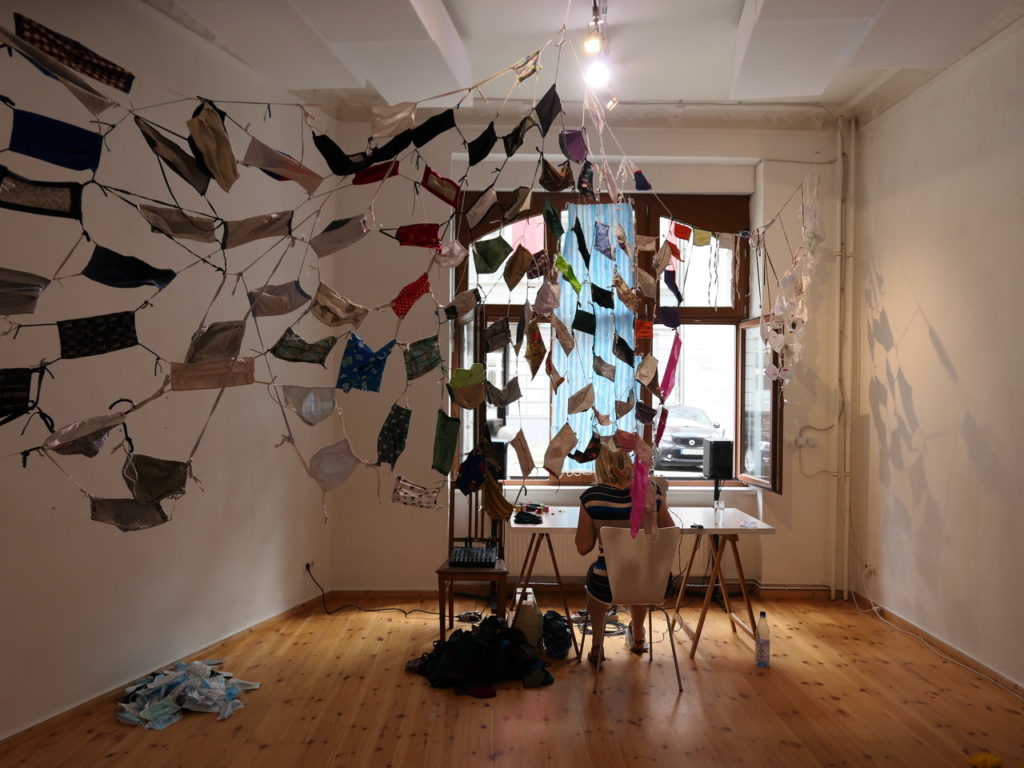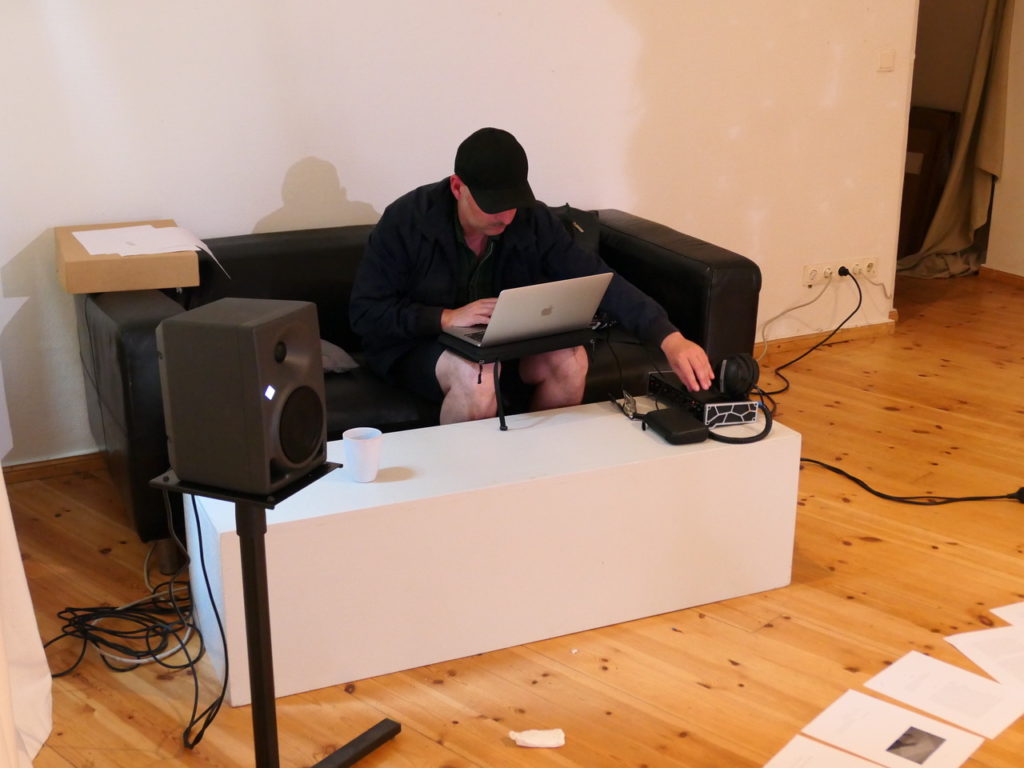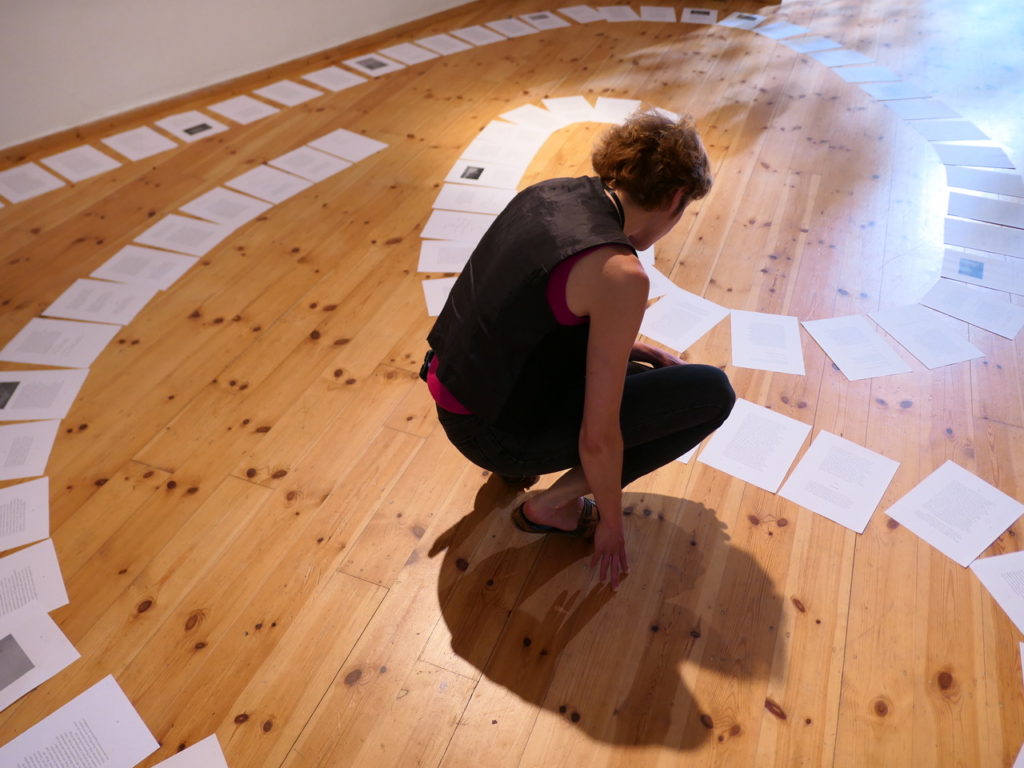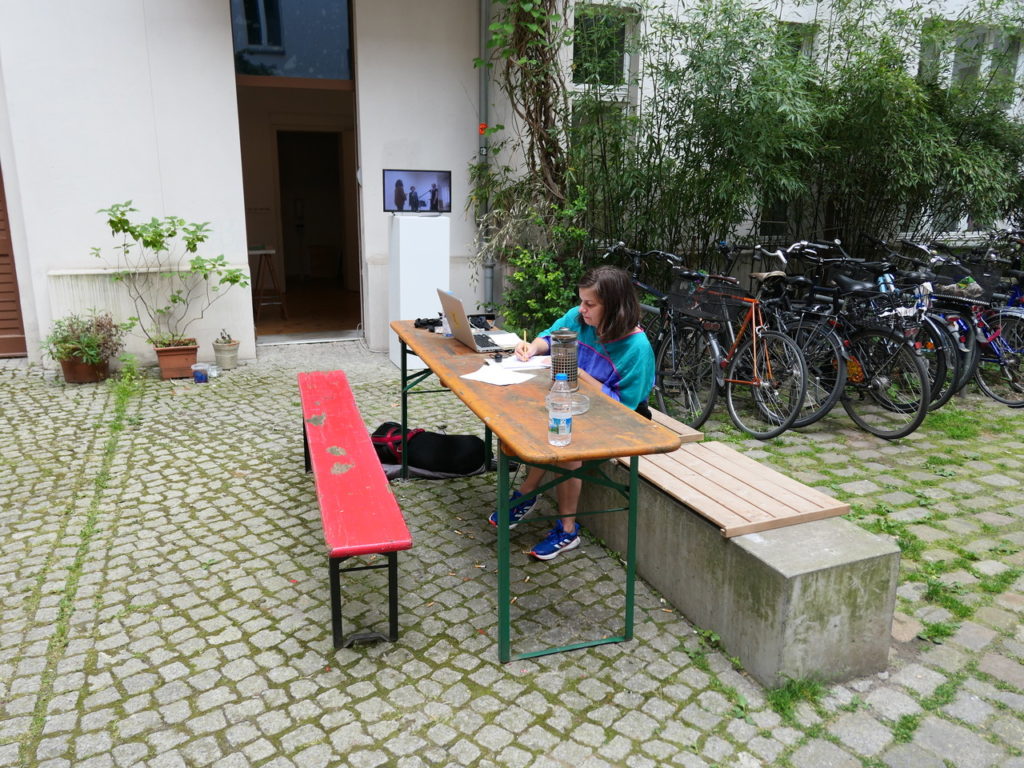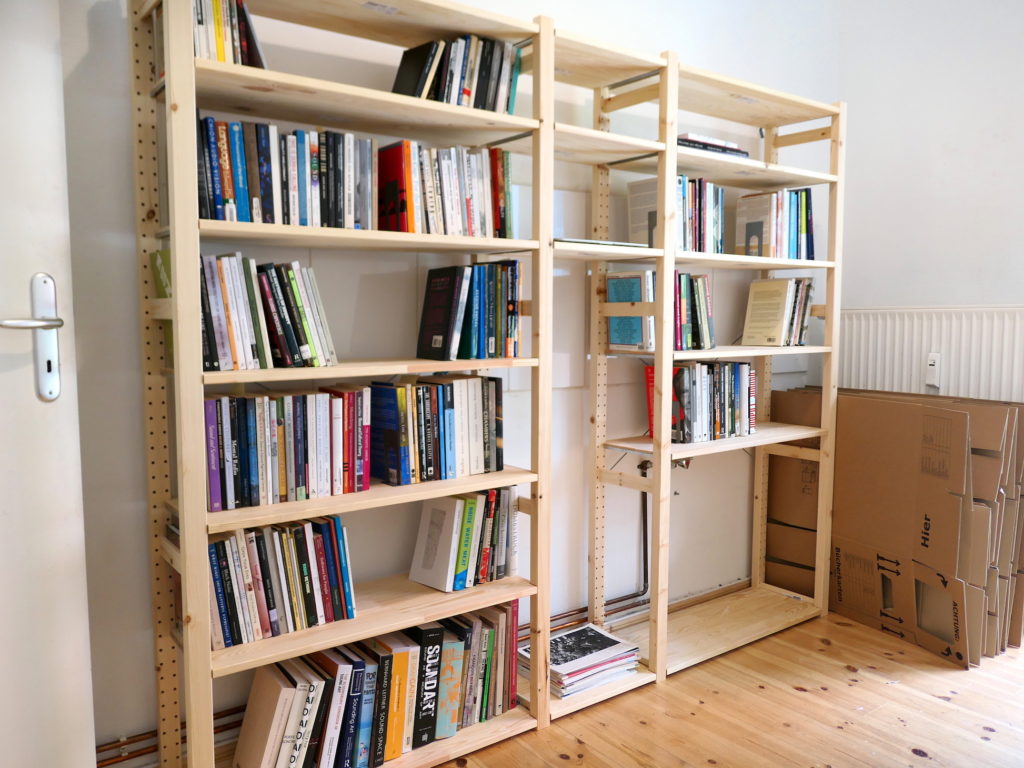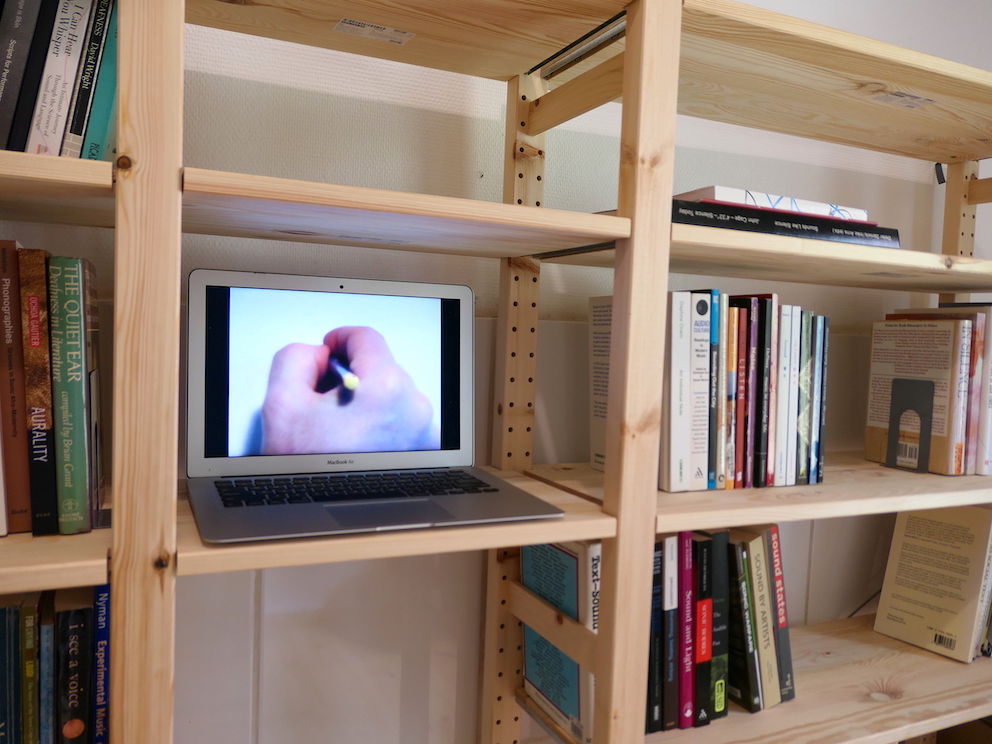Social Acoustics - in residence
We invite you to a showing of results from our residency at Errant Sound. Join us anytime on Sunday, June 6, between 16:00 – 19:00. We will have the doors open and are glad to welcome you. We will also gather outside, talk about our activities, and share a drink together.
The artists Achim Lengerer, Julia Tieke, Zorka Wollny and Brandon LaBelle have been in residence at Errant Sound project space, Berlin. For a two-week period, a range of individual and collaborative activities have been developed, which work in and around questions of social acoustics. Including turning the space into a lab for the writing and recording of protest songs aimed at local issues of gentrification; living in the space and sewing used masks together as a durational performance in order to rejuvenate a sense of hospitality following a year of lockdown; researching and developing texts and soundtracks for a Fernand Deligny film so as to bring into play discussions on who speaks, who listens and the role of silence and pauses in all of this; and organizing a reading room comprised of books and materials on sound studies and auditory knowledge – these actions take place as individual processes that also interfere with each other, giving way to a social acoustics of shared creativity.
The experiences of hearing and being heard contribute greatly to the work of recognition and mutuality, supporting the building of community as well as the struggles by which to orient identity. Through a range of acoustic gestures and practices, from disruptive signals to vibrant ecologies of togetherness, hearing and being heard become scenes or processes of orientation and reorientation, agreement and disagreement, friendship and escape. The issue of social acoustics is put forward as a research framework in order to map out the ways in which sound and listening lend to social, cultural, and political experiences and imaginaries. This includes a consideration of the built environment and forms of spatial inhabitation, issues of language, voice, and what it means to speak from one’s skin, and questions of ecology and how acoustics contributes to more-than-human worlds.
In addition to social acoustics, the concept of acoustic justice is raised, suggesting that the movement of sound through a given environment carries questions of social equality and the power of “regimes of aurality” shaping our listening habits or capacities. How might we think through understandings of agency from a sonic or acoustic perspective – how does sound and acoustics support forms of self- and collective-determination, and ways of moving? Are there particular listening practices that may impact onto scenes of injustice and communal effort? Are there situations in which listening must be refused, or blocked in defense of persons at risk? What types of acoustic arrangements can be made in support of a diversity of voices and orientations?
